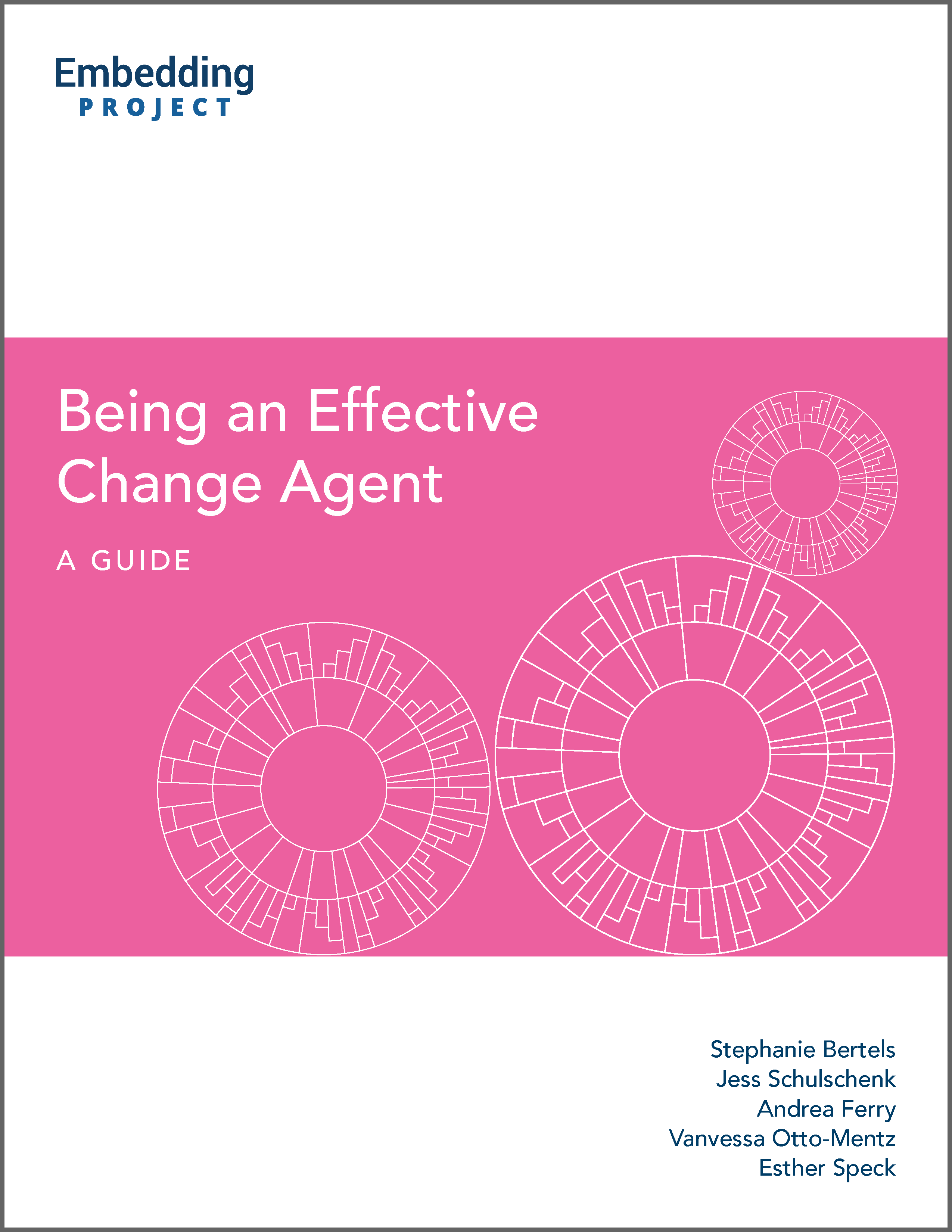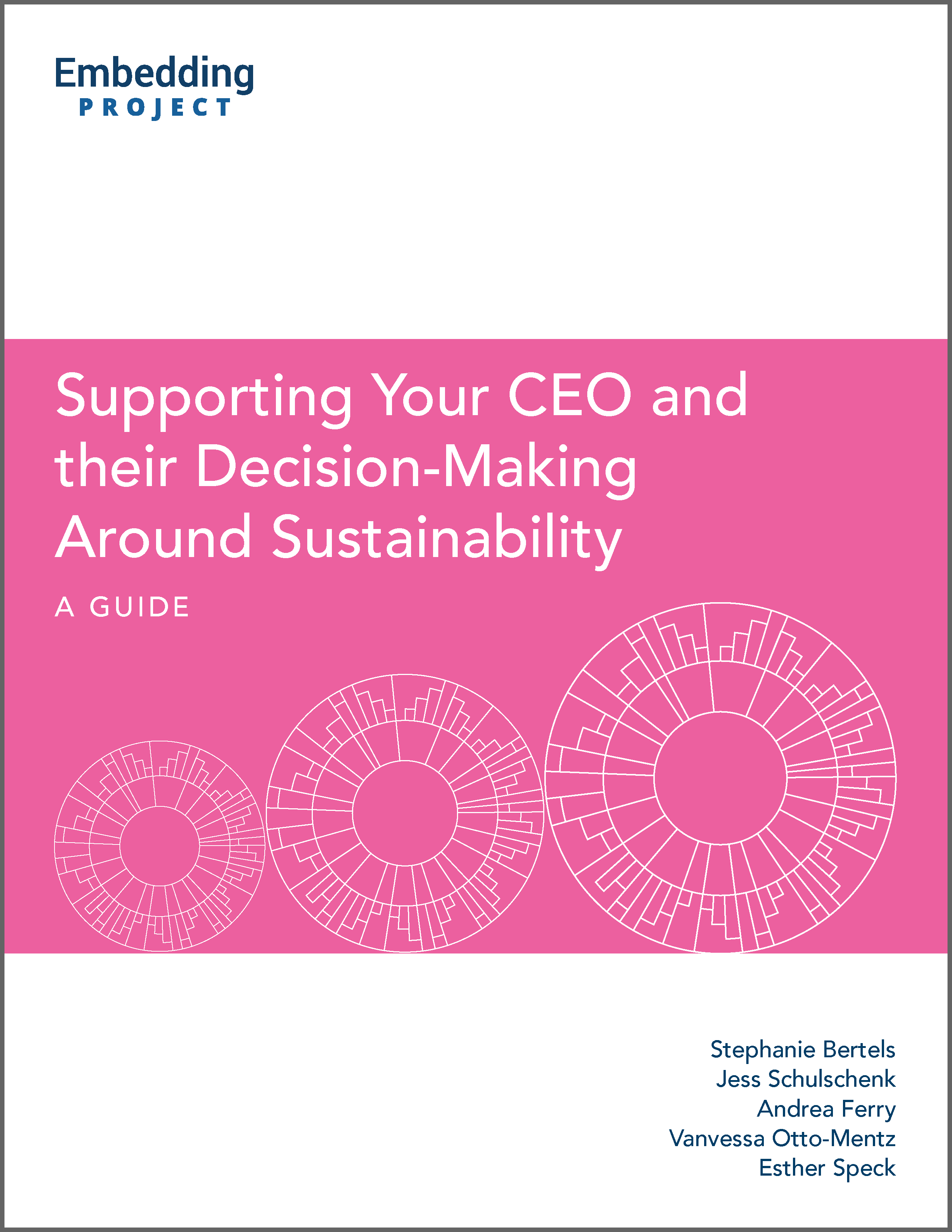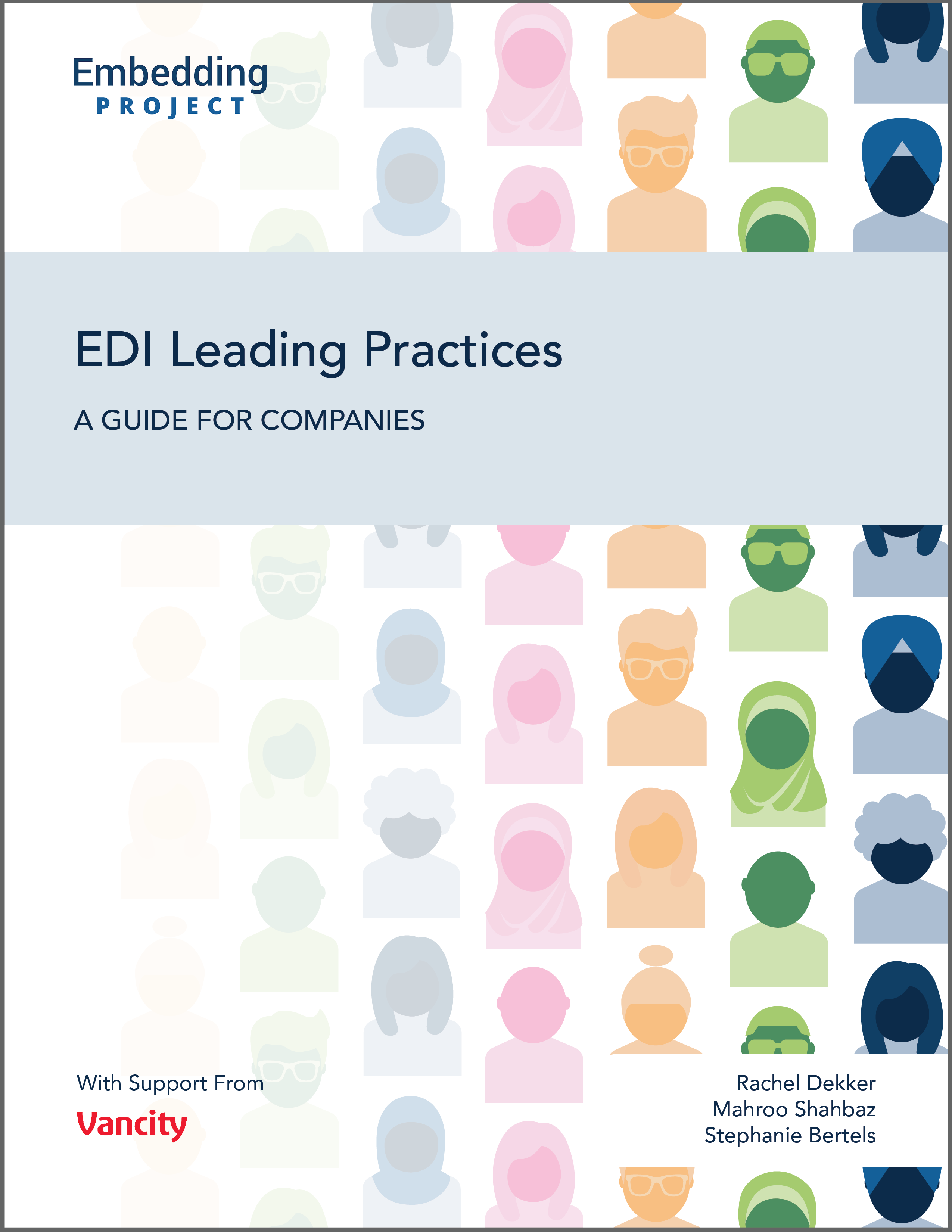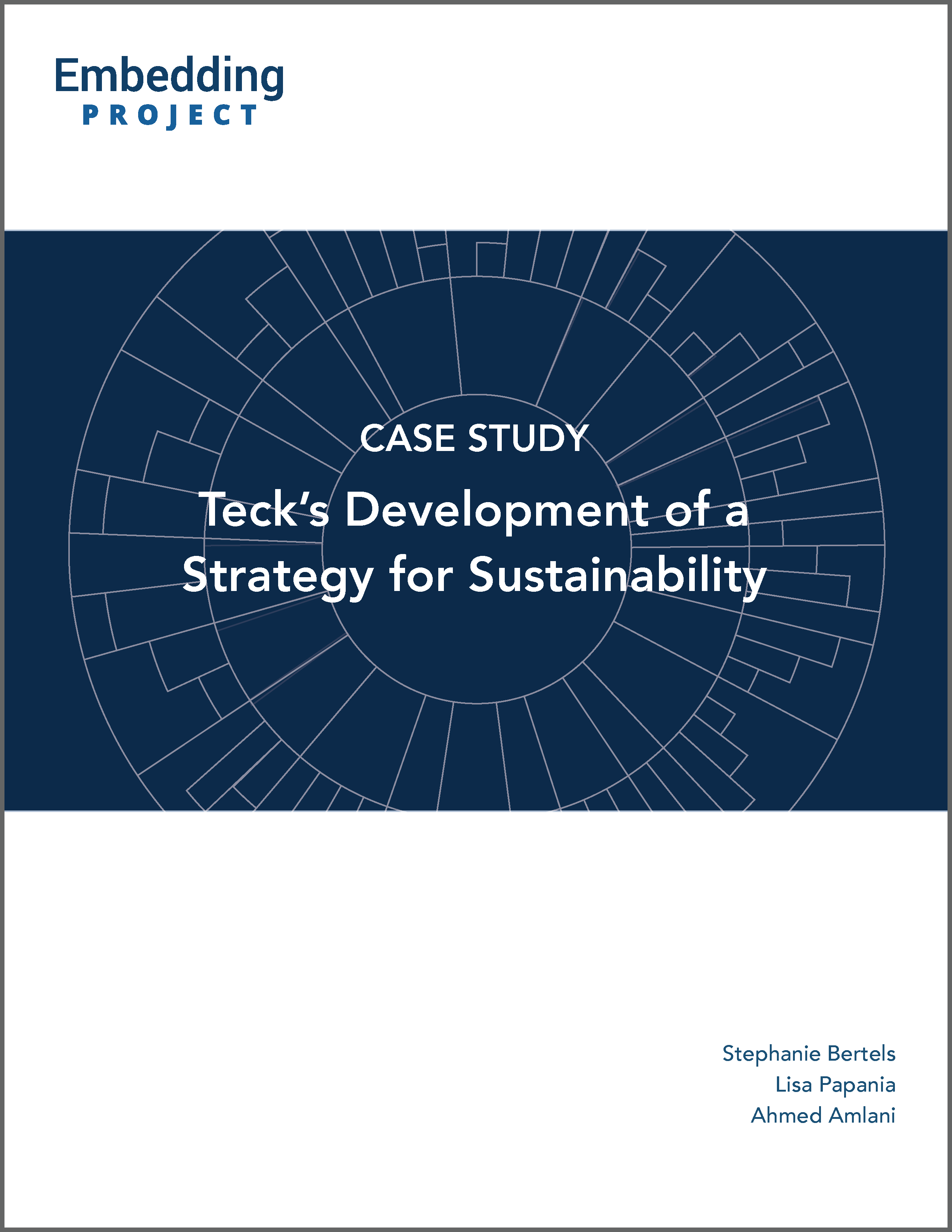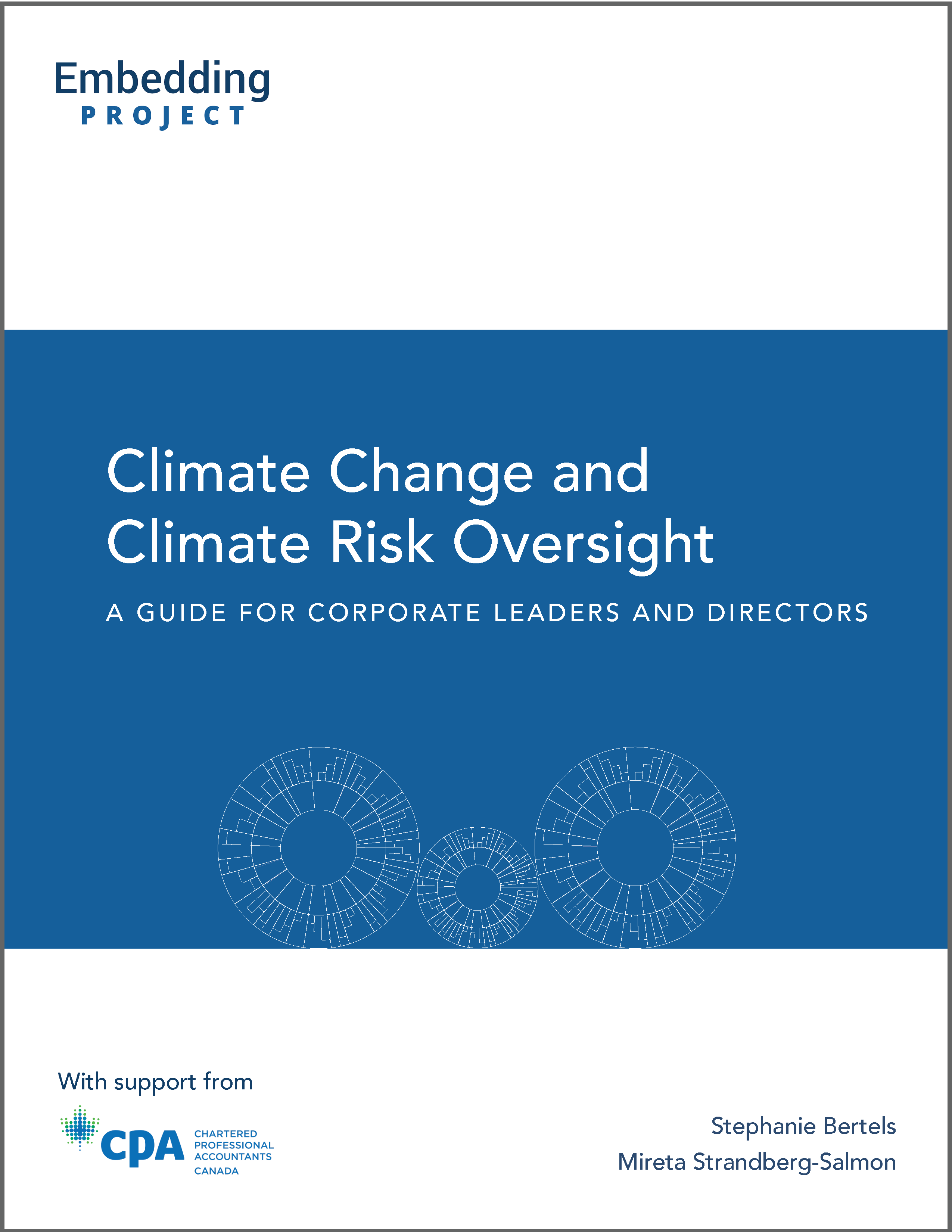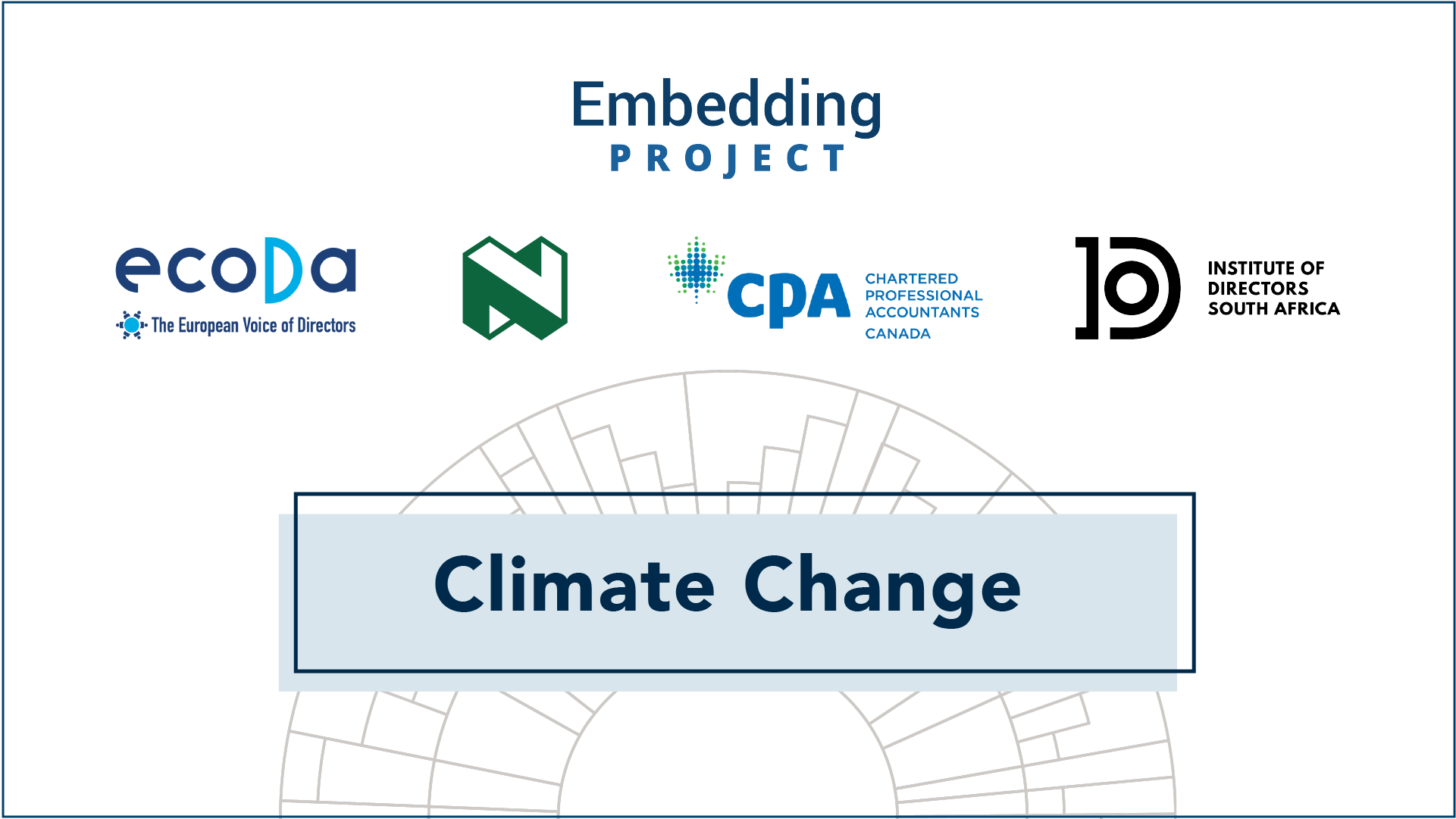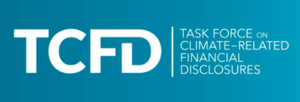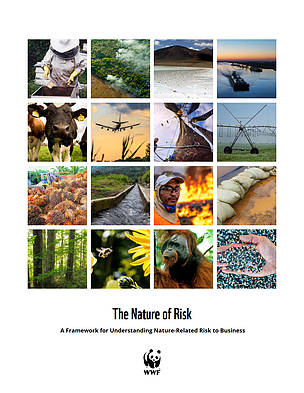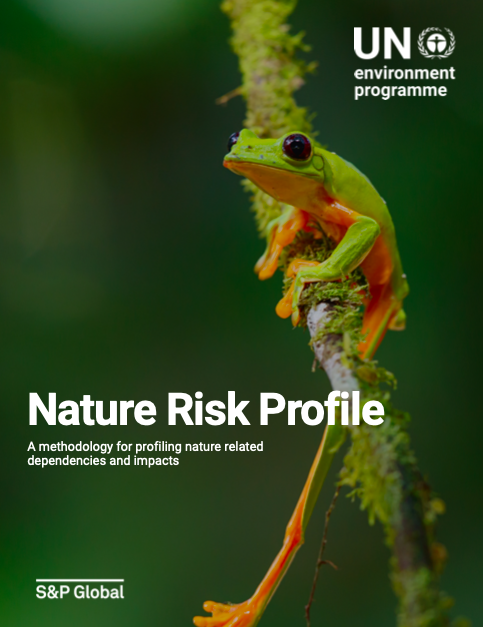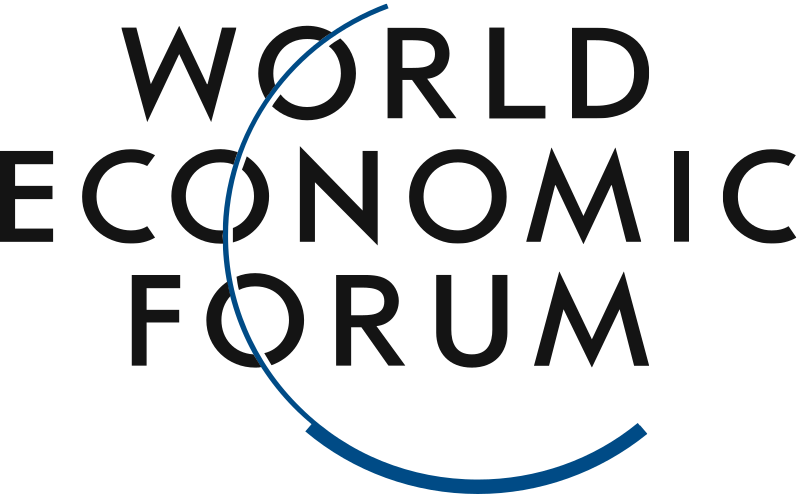Governance and Oversight
Description
Includes board oversight of sustainability risk and performance; board sustainability competencies; diversity of senior management and board; inclusive practices at senior management and board level; and board independence.
Share this Subissue on:LinkedIn
Resources
Building Competencies
Becoming an Agent of Change
This guidebook is based on a multi-year research project we undertook to explore: 'Why and how do privileged insiders become agents of change, challenging institutions for broader societal benefit?' We share what we have learned about the process of becoming an agent of change, incorporating the experiences of the change agents we interviewed in their own words. We hope that this guide helps you to reflect on your own journey of change.
Being an Effective Change Agent
How can you prepare yourself to be a more effective sustainability change agent? This guide was designed to share insights on how change agents can support their CEO and influence thinking on sustainability. It is based on a review of prior academic research on CEO decision-making and combined with the practical experiences and insights gleaned from interviews with over 200 CEOs, board members, and sustainability executives. It explores a broad range of global companies and industries including finance and insurance, material extraction, retail, manufacturing, transportation, logistics, utilities, and agribusiness, as well as a diverse array of ownership structures, including public corporations, privately owned businesses, and co-operatives.
To further support you in bolstering your own effectiveness, we have also developed the Being an Effective Change Agent: Personal Inventory. We encourage you to use this as a tool for reflection, and to help you plan your future personal development.
Supporting Your CEO
CEOs play a crucial role in embedding sustainability into the strategies and day-to-day decisions of their organisations. Based on over 200 interviews with CEOs, board members, and sustainability executives from a range of global companies and a review of prior academic research on CEO decision-making, we developed these resources to share insights on how corporate change agents can help influence CEO thinking on sustainability.
In our Guide, we describe each of the characteristics in detail, incorporating as many direct experiences as possible to help sustainability change agents think about how to support their CEO. We also developed a Tactical Inventory to help change agents reflect on these tactics and to identify which of them might be most appropriate for their own setting.
EDI Leading Practices: A Guide for Companies
Workplace equity, diversity, and inclusion (EDI) is a complex and rapidly evolving space, and increasingly, companies are interested in understanding how to meaningfully advance EDI in their organisations. To help them do so, we consulted EDI research and guidance, reviewed practices of over 100 companies, and sought input from practitioners across a range of industries and geographies. Our Equity, Diversity, and Inclusion Leading Practices Guide offers a comprehensive framework with practices, case studies, and resources to help organisations embed EDI into their strategy, structures, and culture.
Teck's Development of a Strategy for Sustainability
This case provides an insider's perspective on the development of Teck's first strategy for sustainability. It explores the company's early rationale behind developing and implementing a multi-year strategy, and provides insights on how sustainability champions within the company used environmental and social megatrends to envision and co-create a long-term approach to sustainable business. This case also provides insights on the major obstacles and lessons that staff and leadership learned through this transformative experience.
Lead From The Top: Building Sustainability Competence on Corporate Boards
This report from Ceres explores how boards can successfully integrate sustainability into their governance structure by raising their own competence on sustainability issues. This report focuses on the skills and experience needed for board members to provide thoughtful and effective oversight of sustainability risks and opportunities, in addition to the tools and processes that can help foster deeper engagement at the board level around these issues.
CEO Guides
The WBCSD has published a number of CEO Guides to provide a high-level overview on the risks and opportunities of corporate sustainability issues. These guides focus on topics such as human rights, water, climate-related financial disclosures, the SDGs, climate action, and the circular economy, and will support executives at your company with understanding key themes and trends, aligning business strategy with critical societal and environmental agendas, and developing and implementing meaningful, credible goals.
Leadership for the Decade of Action
This short report can help you to embed sustainability into your leadership culture. Written by the United Nations Global Compact and Russell Reynolds Associates, it identifies leadership attributes that are critical for enacting sustainability-related transformations at the necessary level and scale. The report is informed by in-depth interviews with 55 sustainability pioneers, including chief executives and board members, and would be of particular benefit to reflective, growth-oriented leaders and to HR teams seeking to hire and develop new leaders.
Engaging Your Board on Sustainability: Advice for (and from) Senior Sustainability Leaders
How can you make the most of your time with the board? We asked sustainability leaders from our corporate peer group for their advice on effective board engagement.
Advancing the S in ESG: A primer for CFOs
This primer from WBCSD, in partnership with Shift Project and the CFO Network, is designed to introduce CFOs to social sustainability and why it is essential to their role. Part one provides overview of the what, who, and how of corporate social performance, and part two shares key insights from CFOs on how to better measure social performance.
Primer on Climate Change: Directors’ Duties and Disclosure Obligations
This primer from the Climate Governance Initiative can help directors and other senior executives understand the material financial and systemic risks that climate change presents to corporations and their investors. It begins by providing an overview of the evidence of these financial risks, and then examines the obligations these risks create in respect to both the duties of directors and disclosure across different jurisdictions. It also considers the increasing attention to biodiversity risk and its potential to affect directors’ duties.
Sustainability Reporting Frameworks: A Guide for CIOs
This report is an excellent primer on most commonly cited ESG reporting frameworks: the Climate Disclosure Project (CDP), the Global Reporting Initiative (GRI), the Sustainability Accounting Standards Board (SASB) and the Task Force on Climate-related Financial Disclosures (TCFD). Although intended for CIOs, this report will provide executives and change agents across the spectrum with a basic understanding of the frameworks and their fundamental differences, including audience, scope, and competing definitions.
Nature for boards: A primer
This resource from Pollination - in collaboration with Chapter Zero and Korn Ferry - provides a good summary of key nature topics and practical guidance that can help you to support environmental resilience. Created for non-executive directors and board members, this guide explains what future-facing governance and leadership look like in the context of nature-related risks and opportunities; nature fundamentals for businesses; directors' duties and nature risk; understanding nature-related opportunities; and the steps directors should be taking now.
Risk Oversight
Climate Change and Climate Risk Oversight
Climate change is a planetary emergency that presents severe risks to businesses, society, and the global economy. No business, regardless of the sector, is immune – and businesses around the world have a key role to play to help avoid the worst impacts. This guide will help you understand the science behind climate change, why climate change matters to your business, and what actions your business can take to accelerate the transition to a net-zero, climate-resilient future.
Climate Risk Oversight for Directors
This 4-part video series will help corporate directors and leaders understand the risks of climate change and their role and fiduciary responsibilities to oversee these risks. We have also created videos specific to the Canadian and South African context.
Climate Risk - Is it on Your Radar?
This brief will help boards to quickly learn and understand the essential connections between climate risk and their fiduciary duty, such as climate change impacts manifesting quickly and in different ways, looming regulations, and growing demands for risk-related disclosure. The brief also provides a list of priming questions that directors should be asking themselves to ensure climate change readiness.
2024 Ceres Guidance for Investor Engagements with Directors on Climate Risk Governance
This brief from Ceres provides details on some of the key climate change-related topics that investors and proxy advisory firms may want to consider to inform their company engagements and decisions when considering the election of directors responsible for climate change risk oversight. It builds on its 2022 version and the current and anticipated sustainability disclosure frameworks and regulations in the U.S. and abroad to incorporate key elements of effective climate governance.
The Chancery Lane Project
The Chancery Lane Project (TCLP) is a collaborative and global effort to deliver climate solutions through the creation of new and practical contractual clauses. These clauses can be incorporated into law firm precedents or commercial agreements, ensuring that every contract and law supports the transition to a low-carbon economy. The TCLP toolkit includes net zero implementation tools; a net zero drafting checklist to help you when drafting or negotiating net zero concepts in contracts; case studies that highlight how TCLP clauses have been applied; and 'Best in Class' net zero clauses aligned with major frameworks, such as the Paris Agreement and Race to Zero. TCLP resources will be particularly helpful for directors, legal professionals, and counsel representatives tasked with creating stronger, binding contracts with value chain members.
ESG / Sustainability Governance Assessment: A Sustainable Board Roadmap
The Sustainable Board Roadmap is a tool for boards, management, and other governance professionals and teams to assess and benchmark the board’s ESG / sustainability governance practices. The Sustainable Board Roadmap includes 39 practices for board members, and consists of evaluation questions and a ranking system that allow for a gap assessment of leading practices on ESG oversight by boards. This tool will help improve awareness of emerging trends on sustainability issues, and will help identify which practices are most relevant for your organisation.
Climate Change and ESG-related risks in Value Chains: What Board Directors need to know
This briefing from the Climate Governance Initiative and the Commonwealth Climate and Law Initiative provides guidance on new, existing, and proposed legislation on value chain due diligence, company obligations, and driving due diligence across value chains. This resource also explains the impacts in scope and requirements for due diligence regulations across different jurisdictions.
The Essential Role of the Corporate Secretary to Enhance Board Sustainability Oversight: A Best Practices Guide
Corporate secretaries have a key role in helping Boards build awareness of the risks and opportunities related to sustainability issues and trends. This guide explains the steps a corporate secretary can take to embed sustainability within a board's mandate and includes a checklist for updating governance models to take sustainability into account in board decision-making. The guide also includes a case study that provides practical examples of how a corporate secretary can improve its sustainability-related governance.
Overseeing environmental, social and governance (ESG) matters: A framework for boards
This document from CPA Canada can help boards better understand their role in advancing ESG. The first section it explains the growing importance of ESG for corporate boards, and the second section outlines a six-step ESG oversight framework. This resource provides a good introduction to ESG governance, and while it was designed to support management in engaging with boards of directors on their oversight of ESG issues, it may also be helpful for senior executives and board members as well.
Climate Risk
Climate Change and Climate Risk Oversight
Climate change is a planetary emergency that presents severe risks to businesses, society, and the global economy. No business, regardless of the sector, is immune – and businesses around the world have a key role to play to help avoid the worst impacts. This guide will help you understand the science behind climate change, why climate change matters to your business, and what actions your business can take to accelerate the transition to a net-zero, climate-resilient future.
Climate Risk Oversight for Directors
This 4-part video series will help corporate directors and leaders understand the risks of climate change and their role and fiduciary responsibilities to oversee these risks. We have also created videos specific to the Canadian and South African context.
The Task Force on Climate-related Financial Disclosures
Momentum is growing for organisations to formally and transparently articulate the risks that climate change poses to the value of their assets and their future profitability. The Task Force on Climate-related Financial Disclosures (TCFD) emerged as a response to this call for action, empowering companies to more effectively measure and evaluate their own risks and those of their suppliers and competitors. The TCFD promoted “consistent, comparable, reliable, clear, and efficient” voluntary climate-related financial disclosures, and has developed comprehensive recommendations and resources in support of this. These resources focus on governance, strategy, risk, metrics, targets, and the use of scenario analysis for evaluating climate-related financial risks and opportunities.
The TCFD has produced a comprehensive Final Recommendations report and several supplemental reports, including a Technical supplement, which provides in-depth information and tools for using scenario analyses to understand the strategic implications of climate-related risks and opportunities to your organisation.
Although these resources remain to be an invaluable source of guidance, the Financial Stability Board (FSB) and IFRS have announced that the TCFD has fulfilled its remit and disbanded, and that monitoring of the progress of corporate climate-related disclosures now rests with the IFRS Foundation's ISSB.
Climate Change and ESG-related risks in Value Chains: What Board Directors need to know
This briefing from the Climate Governance Initiative and the Commonwealth Climate and Law Initiative provides guidance on new, existing, and proposed legislation on value chain due diligence, company obligations, and driving due diligence across value chains. This resource also explains the impacts in scope and requirements for due diligence regulations across different jurisdictions.
Climate-related financial impact guide: Supporting business assessment and disclosure
This guide from WBCSD can help you understand the financial implications of climate-related risks and opportunities. It provides a detailed five-step framework to guide companies in assessing and reporting on these impacts: 1) Scoping risks and opportunities; 2) Developing impact and calculation pathways; 3) Gathering scenario and supply chain data; 4) Calculating financial impacts; and 5) Assessing financial statement assumptions and accounting standard connectivity. The framework is followed by a set of examples that illustrate the impact of climate change on financial statements. This guide will be most useful to finance and sustainability departments.
The 2024 Climate Risk Landscape
This report from the United Nations Environment Programme Finance Initiative (UNEP FI) was created to help financial institutions better understand the landscape of climate risk tools. Climate risk tools can play an important role in helping sustainability change agents, procurement specialists, and business leaders to understand climate risks and opportunities, and to inform business strategy. This report explores key trends in physical risk and transition risk tools and provides best practices for tool utilisation, case studies, and recommendations to navigate the dynamic climate risk tools market. It also offers insights into the rapidly evolving regulatory developments around climate-related disclosure frameworks and recent market developments.
Global trends in climate change litigation: 2025 snapshot
This report from the Grantham Research Institute on Climate Change and the Sabin Center for Climate Change Law can help you to better understand the landscape of climate change litigation, including current and future impacts, trends, and themes. The report provides a synthesis of the latest research and developments, including a numerical analysis of how many climate change litigation cases were filed in 2025, where and by whom, and a qualitative assessment of the types of cases filed. This resource will be of particular benefit to sustainability, risk management, and legal professionals.
Climate Change Litigation Database
The Columbia Law School and the Sabin Center for Climate Change Law have created and maintained this database to help track the growing wave of domestic and international climate change litigation. The databases provide information for over 1000 climate change lawsuits from around the world, which include suits against governments, corporations, and individuals. Both the U.S. and global litigation databases are searchable, and for many cases there are links to decisions, complaints, appeals, and other key documents.
The Cost of Inaction: A CEO Guide to Navigating Climate Risk
This report from the World Economic Forum and Boston Consulting Group can help you to understand growing corporate climate risks and the opportunities for businesses to lead by investing in adaptation, resilience, and decarbonisation. The report explains the impacts that climate inaction are having on the world economy, and how these impacts will continue to grow and accelerate; explores the corporate cost of global inaction due to rising physical risks, as well as the growing impacts of transition risks; and explains how companies can unlock new growth by advancing the climate transition. It also provides guidance that highlights core actions and enablers for climate leadership from CEOs.
Nature and Water Risk
The Taskforce on Nature-related Financial Disclosures
Reversing global nature loss depends on a shift in global financial flows away from nature-negative outcomes and toward nature-positive outcomes. This depends on large and small businesses across supply chains, financial institutions, and industries of all types collectively identifying, assessing, managing, and disclosing nature-related dependencies, impacts, risks, and opportunities. Towards meeting this inter-industrial challenge, the Taskforce on Nature-related Financial Disclosures (TNFD) was established in 2021 in response to the growing need to factor nature into financial and business decisions.
The TNFD has developed a market-led, science-based risk management and disclosure framework for organisations to report and act on evolving nature-related risks and opportunities. The TNFD has also developed case studies and sector-specific guidance; a Knowledge Hub that features a curated collection of the latest external resources and market insights on nature-related risks and opportunities; and an open-access Learning Lab that supports self-paced learning about nature-related issues, the TNFD recommendations, and additional guidance.
IBAT Biodiversity Map
The TNFD and IBAT Alliance have collaborated to create an integrated version of the Integrated Biodiversity Assessment Tool's biodiversity map on the TNFD website. This interactive map can help you to access critical biodiversity information and can be used to quickly screen for areas of biodiversity importance using the World Database of Protected Area, the World Database on Key Biodiversity Areas, and the IUCN Red List of Threatened Species. These datasets are recommended by the TNFD for assessing biodiversity importance as part of the TNFD's LEAP approach.
IPBES Transformative Change Assessment
This new assessment report from IPBES can help you to understand the cost of delaying actions to halt and reverse biodiversity loss; the benefits of taking action now; and the actions required to support transformative change. The Assessment Report on the Underlying Causes of Biodiversity Loss and the Determinants of Transformative Change and Options for Achieving the 2050 Vision for Biodiversity – also known as the Transformative Change Report - estimates that delaying necessary action by even a decade will double the costs of acting now and explains how shifting immediately toward regenerative and nature-positive economic approaches can unlock massive opportunities for industry and innovation. The report explains why transformative change is urgent, necessary, and challenging, yet possible; explains five key strategies and associated actions for transformative change; and explores the roles that we can play to enable transformative change. This resource will be most beneficial to sustainability, risk, and strategy professionals, and especially those evaluating nature-related risks and opportunities.
ENCORE (Exploring Natural Capital Opportunities, Risks, and Exposure)
ENCORE (Exploring Natural Capital Opportunities, Risks, and Exposure), a free tool from the Natural Capital Finance Alliance, can help you to visualise how your business may be exposed to accelerating environmental change. The tool provides a snapshot of the dependencies and impacts for a wide range of sub-industries and processes, and includes fact sheets and maps to help you understand the links between business activities and nature.
The Nature of Risk
Scientific consensus is growing around risks to business from the loss and degradation of nature. This report and framework from WWF builds on existing natural capital and climate-related risk frameworks, and will help you understand the extricable link between nature- and climate change-related risks. This resource also includes a set of case studies featuring businesses facing the consequences of nature-related risk.
Nature Risk Profile
This guide from UNEP was created to support the financial sector with measuring and addressing nature-related risk. The guide outlines a methodology and provides scientifically robust and actionable sustainability analytics that can help you to assess your company's impacts and dependencies on nature.
The emergence of foreseeable biodiversity-related liability risks for financial institutions: A gathering storm?
Biodiversity-related liability exposure is a growing risk for businesses, and especially financial institutions. This report from the Commonwealth Climate and Law Initiative (CCLI) proposes a framework that can help you to better consider biodiversity-related liability risks. It identifies three high-level categories and ten sub-categories of risks, accounting for physical or ecosystem impacts, the transition to a sustainable or regenerative economy, and the misrepresentation of biodiversity risks or ecosystem impacts. This resource will benefit financial supervisors and professionals in particular, but will also be of help to change agents, business leaders, and enterprise risk analysts.
Integrating Nature: The case for action on nature-related financial risks
This paper from the University of Cambridge Institute for Sustainability Leadership (CISL) can help you better understand the case for integrating nature-related risks into financial decisions. It explains why integration is needed, how it can be done, and outlines four use cases for assessing specific nature-related financial risks. These cases demonstrate the opportunities to mitigate financial risks. The paper also highlights six ways to accelerate the integration of nature into financial decision-making. This resource will be most useful to senior management and sustainability practitioners seeking to engage senior managers.
Nature-related Financial Risks: a Conceptual Framework to guide Action by Central Banks and Supervisors
This technical document and conceptual framework from the Network for Greening the Financial System (NGFS) was created to help central banks and supervisors establish a common understanding of nature-related financial risks so as to advance collective efforts to navigate their complexities and challenges. It provides a brief overview of nature-related financial risks and introduces a principle-based risk assessment framework consisting of three phases: identifying sources of physical and transition, assessing economic risks, and assessing risks to, from, and within the financial system. It also provides a pair of illustrative cases to support the use of the framework.
Although created with central banks and their supervisors in mind, this guidance will also benefit corporate investors and financial institutions.
Nature Risk Rising: Why the Crisis Engulfing Nature Matters for Business and the Economy
This report, the first in the World Economic Forum's 'New Nature Economy' report series, will help you to better understand the dependency and impact of business on nature. The report uses a simple three-stage breakdown: 1) acknowledging and explaining the crisis of biodiversity decline, 2) identifying material risks, and 3) managing material risks. This report explores the scale and urgency of the biodiversity decline emergency and the drivers of nature loss, and provides a helpful fit-for-purpose framework for managing nature-based risks.
Smart Water Navigator
ECOLAB's Smart Water Navigator provides a holistic roadmap to corporate water management that can help you to minimise risk and optimise costs. The Navigator features two tools: the Water Risk Monetizer, and the Water Action Assessment. You can use the Water Risk Monetizer tool to estimate the amount of revenue that could potentially be lost due to the impact of water scarcity on your organisation's operations. It draws on global basin-level water data, and will help you determine water risk at a facility level. The Water Action Assessment employs a straightforward questionnaire to help you understand how your facilities are performing compared to industry-leading water management practices, and allows you to gauge the maturity of your water stewardship strategy.
Water Risk Filter
The Water Risk Filter uses 32 annually-updated, peer reviewed data layers alongside a risk questionnaire to help you explore, understand, prioritise, and respond to water risks at specific sites. It is designed to be easy to use by non-water experts, and is the only water risk tool to assess both basin and operational risks. The filter is also aligned with leading water stewardship frameworks, as well as the UN Sustainable Development Goals. The Water Risk Filter also now applies TCFD-linked scenarios, which will help you to understand how water risks may evolve over time.
High and Dry: How Water Issues are Stranding Assets
Water risk factors are already stranding assets throughout the coal, electric utilities, metals & mining, and oil & gas sectors, and are growing as a strategic concern in other industries. Consequently, the financial sector is facing growing exposure to such water-related risks and their potential knock-on events. The Swiss Federal Office for the Environment created this guide to help you better understand the issue and impacts of water scarcity on business activities and investments. It explain the drivers of water scarcity; highlights case studies across resource majors and examines their preparedness for water-stranding event; and makes recommendations for action for financiers who may be affected.
Aqueduct Tools
Aqueduct's tools can help you to better identify, understand, and respond to water risks. Their tools use open-source, peer-reviewed data to map water risks such as floods, droughts, and stress.
Aqueduct's tools include the Aqueduct Water Risk Atlas, which maps and analyses current and future water risks across locations; Aqueduct Country Rankings, which can help you to compare national and subnational water risks; Aqueduct Food, which identifies current and future water risks to agriculture and food security; and Aqueduct Floods, which identifies coastal and river flood risks and analyses the costs and benefits of investing in flood protection.
Nature's Price Tag: The economic cost of nature loss
This report from Ceres can help you to better understand the economic implications of nature loss. It quantifies the cost of nature loss by driver (including land and sea use change, the overexploitation of natural resources, climate change, pollution, and the spread of invasive species) and relevant ecosystem services for eight unique sectors: biotechnology and pharmaceuticals, chemicals, consumer goods retail, food and beverage retail, food production, forestry and packaging, household and personal goods, and metals and mining. It provides risk profiles for each sector, defining priority areas for nature action based on potential economic losses tied to ecosystem service dependencies. It also provides an engagement framework around four areas of company action: assessing impacts and dependencies; making commitments and setting targets; transforming the value chain; and creating an enabling environment. For each area, the report lists indicators that investors can look for to assess corporate progress. This framework will be particularly beneficial to financial institutions and finance professionals that want to better understand and engage portfolio companies on nature-related risks.
Evidence review on the financial effects of nature-related risks
This report from the TNFD can help you to better understand current evidence on the financial materiality of nature-related risks for businesses. Drawing on over six hundred pieces of evidence from hundreds of sources, including academic research, case studies, company reports, expert insights, and interviews with corporates and financial institutions, the report explores how nature-related risks can translate into financially material outcomes. It provides a landscape analysis on the financial effects of nature-related risks on businesses - such as water-related risks, land use change as a driver of natural disasters and the decline in pollinator species, soil depletion, zoonotic diseases, and ecosystem stability risks - and an assessment of nature-related financial risks based on findings from company disclosures and engagement with industry experts. It also identifies evidence gaps, presents insights from corporates and financial institutions on their risk assessment approaches and related challenges, and sets out recommendations for corporates, financial institutions, academics, regulators, and standard setters. This report will be especially beneficial to sustainability, risk, and finance professionals.
Other Resources
Lead From The Top: Building Sustainability Competence on Corporate Boards
This report from Ceres explores how boards can successfully integrate sustainability into their governance structure by raising their own competence on sustainability issues. This report focuses on the skills and experience needed for board members to provide thoughtful and effective oversight of sustainability risks and opportunities, in addition to the tools and processes that can help foster deeper engagement at the board level around these issues.
Designing Sustainability Governance: Board structures and practices for better ESG performance
This report by INSEAD can help you to understand how your board can be structured to better support sustainability. It highlights common board structures and provides a practical pathway for achieving an ideal model - one where sustainability competence and oversight are fully integrated. It also features intermediary options that can be used as stepping-stones towards embedding sustainability, and illustrates six complementary practices to enhance your governance model, such as regular updates from ESG managers and input from external specialists. This resource will be most useful to board directors, executives, and sustainability teams.
Boards: Stepping Up as Stewards of Sustainability
This report by Egon Zehnder and The Sustainability Board Report highlights a gap between board members’ increasing awareness of ESG as a strategic imperative and the lack of action being taken at the board level. The report suggests this is due to board members feeling ill-equipped to take concerted action on ESG-related issues and activities. In response, the report outlines core steps you can take to develop relevant board competencies and provides a framework for assessing individuals’ potential contribution to board stewardship. This guidance will be most useful to board members and HR professionals.

